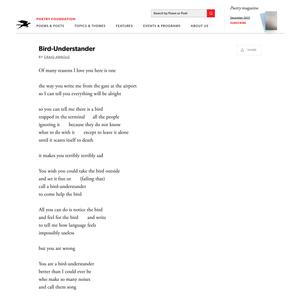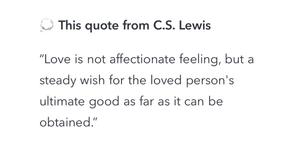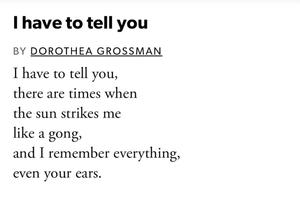Nobody realizes that some people expend a tremendous energy trying to be normal.” —Albert Camus
Louise Glück put it: “You look at the world once, in childhood. The rest is memory.
First: a set of suggested timeless resolutions that I stole from Jason Zweig.
“Listening to what someone else is saying without hearing what you already think is one of the hardest challenges for the human mind. When you listen, listen as if your life depends on it. Otherwise, you’ll just hear your own words coming out of someone else’s mouth.”
“Say ‘I don’t know’ at least 10 times a day. That will disqualify you for a career in politics but make you a better person.”
“Introduce yourself to all the people at your job whom you see every day but haven’t met yet. …”
“Most of what passes for modesty in this world is just posturing meant to elicit praise. There is no such thing as humility; there is only realism about how much of your life you owe to luck. Always keep that foremost in your mind, and people will think you are humble.”
“Don’t laugh at things you don’t understand. Take the time and trouble to understand them first. Most likely, you will find that once you understand them,...
"I do think awful things may happen at any moment, so while they are not happening, you may as well be pleased"
―Nigella Lawson
“Old age is no joke, but it can feel like one,” Tad writes, noting that a life can be divided into three stages: “Youth, Maturity, and You Look Great.”
You don’t remember the times your dad held your handle bars. You remember the day he let go.
– Lenore Skenazy


“We are too much in awe of those who succeed and far too dismissive of those who fail”
— Malcolm Gladwell
"Follow your inner moonlight; don't hide the madness"
―Allen Ginsberg


We must trust in what is difficult; everything alive trusts in it.
– Rainer Maria Rilke


“When we are given an apparent solution to a systemic problem, that solution also shapes the way we think about our values. If you are able to buy a gun and keep it in your house, you may do so and feel safer. You may start to say you value gun ownership when what you originally valued was safety.”
Rather than confronting the systems that create our problems, technosolutionists zoom in on a single friction point and deploy a product. To illustrate this, Sanchez-Gomez offers a great example: imagine a company developed a numbing ointment for the wounds of children working in factories rather than abolishing child labour. The ointment treats the symptom, might even be reported as ‘helpful’ by those using it, but it does nothing to address – and arguably helps preserve – the underlying harm.
“Easy reading is damn hard writing”
— Maya Angelou
"I do not want people to be very agreeable, as it saves me the trouble of liking them a great deal"
―Jane Austen
I heard the old, old men say,
“Everything alters,
And one by one we drop away.”
They had hands like claws, and their knees
Were twisted like the old thorn-trees
By the waters.
I heard the old, old men say,
“All that’s beautiful drifts away
Like the waters.”
—W.B. Yeats

Respect for ourselves guides our morals; respect for others guides our manners.
– Laurence Sterne

I once heard a combat vet say: “We offer poor folks socialism to become soldiers to go abroad and defend Capitalism. They give us free housing, lodging and food to diminish others access to the same thing.” That always stuck with me.